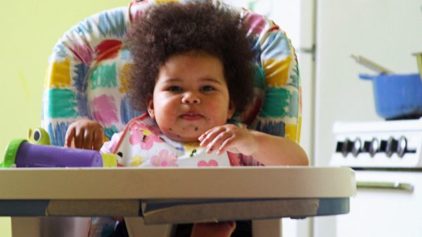By Debbie Gisonni
The Biggest Loser weight loss reality show kicked off 2013 with a kid’s edition to help end childhood obesity. First lady Michelle Obama has been traveling the country educating kids and communities on nutrition and exercise. Numerous health and state organizations have followed suit with similar programs and campaigns.
While it’s encouraging to see so many community leaders (yes, reality shows do influence the public) taking the issue of childhood obesity to heart, ultimately, this is a parent’s responsibility. As a parent or guardian, you have a choice — to be a contributor to child obesity or be a role model for healthy living. There’s a reason why children live with parents until they become adults. They aren’t capable of taking care of themselves. Their brains aren’t even fully developed until their mid-20s, so up until then, good judgment is compromised.
Only a generation ago, family dinners were eaten together, school lunches were homemade and pre-packaged or fast food was the exception rather than the rule for meals. Kids actually played (meaning they moved their body in some way) outside every day. So, it’s easy to blame child obesity on changing times. Today’s dual income, tech-centric, over-scheduled families who consume highly processed meals without any form of regular exercise makes living a healthy lifestyle difficult at best. But then again, even my generation of kids had temptations. We could have sat in front of the TV eating TV dinners all day, but we didn’t. We didn’t because it wasn’t allowed. There were rules and boundaries set by our parents that prohibited laziness and bad eating. I wasn’t even allowed to get a snack out of the kitchen without permission from my mother!
If you want your children to be healthy and fit kids and adults, you need to set boundaries and be the best role model you can.
Here are 10 ways you can take responsibility for your child’s health and well-being:
• Teach and practice portion control. Whether it’s in a restaurant or at home, check out the quantity of food on your plate and consider that your stomach is only about the size of your fist.
• Be aware and know what your kids are eating (where and when) and establish limits where you can.
• Make school lunches. Choose healthy turkey, veggies and fruit.
• Don’t buy junk food. If it’s not in the house, you can’t eat it. Have it once in a while as a special treat, not as a regular part of your family’s diet.
• Educate your whole family. A book or a class on nutrition will help everyone understand the basics of good nutrition and the ultimate impact it has on the body.
• Give up processed and fast food. Wean your family off anything that’s a pre-made meal in a box, hydrogenated oils (trans fats) and high fructose corn syrup…
Read More: huffingtonpost.com


